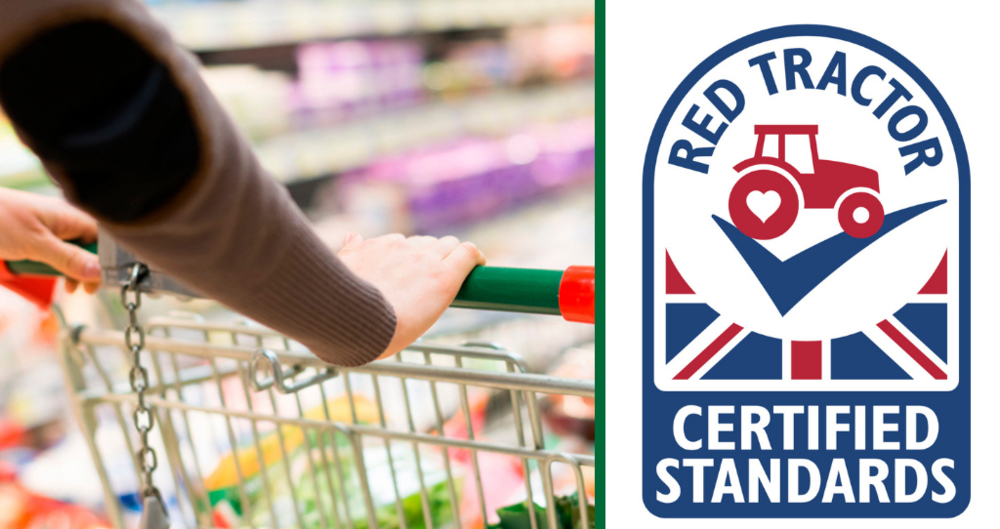NFU members: Download the NFU's full consultation response here
Read the NFU's response to the published standards: Red Tractor agrees new standards following consultation
Informing our consultation response
We held more than 75 meetings across all regions during the consultation and engaged with around 3,000 members to inform our response. We highlighted how in some sectors an imbalance exists between the production standards expected of UK farmers, compared with those required of foreign imports.
Click on the links below to read our detailed response for your sector:
More on this subject:
- Red Tractor standards consultation: What you've been telling us
- What is the relationship between the NFU and Red Tractor?
- Watch: Our NFU Live webinar with Red Tractor CEO Jim Moseley and chair Christine Tacon answering your questions
The NFU's eight key principles for developing standards
The eight key principles set out by the NFU are:
- Continue to retain trust and support growth in the domestic market for British food.
- Provide an assurance platform for growth in the export market for British food and ensure high value exports have robust assurance supporting traceability claims.
- Retain its leading position on cost effective assurance and protect members from inspection and regulatory duplication. Any additional costs associated with implementing new standards should be supported with a clear and simple cost benefit analysis or business case.
- Be empowered to challenge duplicity within the marketplace and not facilitate the hypocrisy of buyers sourcing policies which undermines domestic standards.
- Seek to add value through segmentation and market differentiation where there is a need to deliver different value propositions to different markets, without inflating the core standard and eroding value to scheme members.
- Provide marketing choice for buyers. Scheme options, or bolt-ons, could provide competition for cost-effective or a more practicable alternative for brands and scheme members alike.
- Provide a viable but discretionary alternative to new or increasing regulatory burdens and it should deliver efficient solutions in areas that are susceptible to regulatory burdens.
- Explore the opportunities for inspections to be driven by outcomes and data, and where possible reduce the burden of inspection and add value back to farmers

NFU Deputy President Stuart Roberts, pictured above, said:
“Red Tractor’s standards are the bedrock of UK agriculture and have helped establish our food and farming industry as the benchmark for quality across the world. There is strong support for Red Tractor’s original purpose of assuring the public that food is safe, produced with care to high standards of environmental protection and animal welfare and is fully traceable back to UK farms.
“Continued support for the Red Tractor assurance scheme will be crucial not just at home but, as new trade deals are developed, it will also help to bolster ‘Brand Britain’ as we take British food to new, global markets.
“However, as Red Tractor standards continue to evolve, some of the proposed changes in this consultation have provoked strong feelings within our membership, particularly concerning how the proposed changes demonstrate value back to the farm gate. There is a real risk that farmers and growers will not see deliverable benefits from the Red Tractor scheme without properly addressing these concerns.
“That’s why we are calling for a fresh approach. We’ve set out eight key principles that Red Tractor and the six farming sectors should use as a guide when developing standards now and in the future. We believe this will ensure that Red Tractor standards are more meaningful for farmers, increase relevance and integrity within the food supply chain, and importantly, deliver value back to the farm.
“In the arable sector, for example, where there is limited use of the Red Tractor logo on end products, members are concerned that the high standards delivered domestically are undermined by imports competing in the same market. This hypocrisy weakens the integrity of standards and burdens farmers with extra cost. There needs to be more transparency about what standards the supply chains are asking for and whether these can be matched by imported product.
“We would also like to see Red Tractor aspiring to be a progressive, cost effective and flexible assurance scheme which continues to be a vital part of the UK food supply chain. It must show it is listening and provide confidence to farmers and growers that new standards are outcome focused, not just a tick box exercise.
“Now more than ever, we need to ensure that all our standards on British food, whether for animal welfare, food safety or environmental protection, meet the needs of both farmers and the public.”
Read our response for your sector
Dairy
The dairy response questions whether proposals made in the standards review will truly deliver and enhance the already high livestock and worker welfare and environmental credentials of the dairy sector, as well as provide value for our members. Robust arguments have been made expressing our members' views around proportionality and standard relevance, considering the diversity of our sector. An outcome-based set of standards is required, not an approach that only increases the cost and administrational burden to dairy farmers.
NFU members: Download the full response
Livestock
The beef and lamb sector has taken a pragmatic approach to some of the suggestions such as recording veterinary medicine use. However, members have raised some areas of concern, especially around the need for a professional feed adviser.
NFU members: Download the full response
Poultry
For poultry meat producers (eggs are not covered by Red Tractor), accreditation is crucial to access the market. There is concern among our poultry members that some of the new standards replicate existing legal requirements. We believe that Red Tractor should not be a proxy for existing statutory enforcement. The proposed new standards would make the audit process increasingly burdensome for poultry meat producers, without any tangible benefit to producers or consumers.
NFU members: Download the full response
Crops
For the crops sector, members have expressed real concern over the practical relevance of some of the new sections, and lack of clarity of some new standards. At a time when international competitiveness is more important than ever, V5 would place a greater burden of assurance on farmers, without any additional value in return.
NFU members: Download the full Crops and Sugar response
Fresh produce
The fresh produce response questions what value any new revisions deliver back to farm, particularly where there is a disproportionate amount of cost and effort borne by the grower and a greater use of consultants to monitor and manage assurance programmes with little value in return. Our response also raises the critical argument that it is important not to duplicate other schemes that already provide robust assurance to a greater depth.
NFU members: Download the full response
Sugar
All growers of sugar beet have to be Red Tractor assured in order to supply British Sugar, so it is essential the standards are fit for purpose. Growers have told us they think many of the proposed V5 Standards lack relevance for the sector, do not deliver extra value to farm businesses and heighten concerns over equivalence with sugar beet growers having to meet higher standards than imported sugar.
